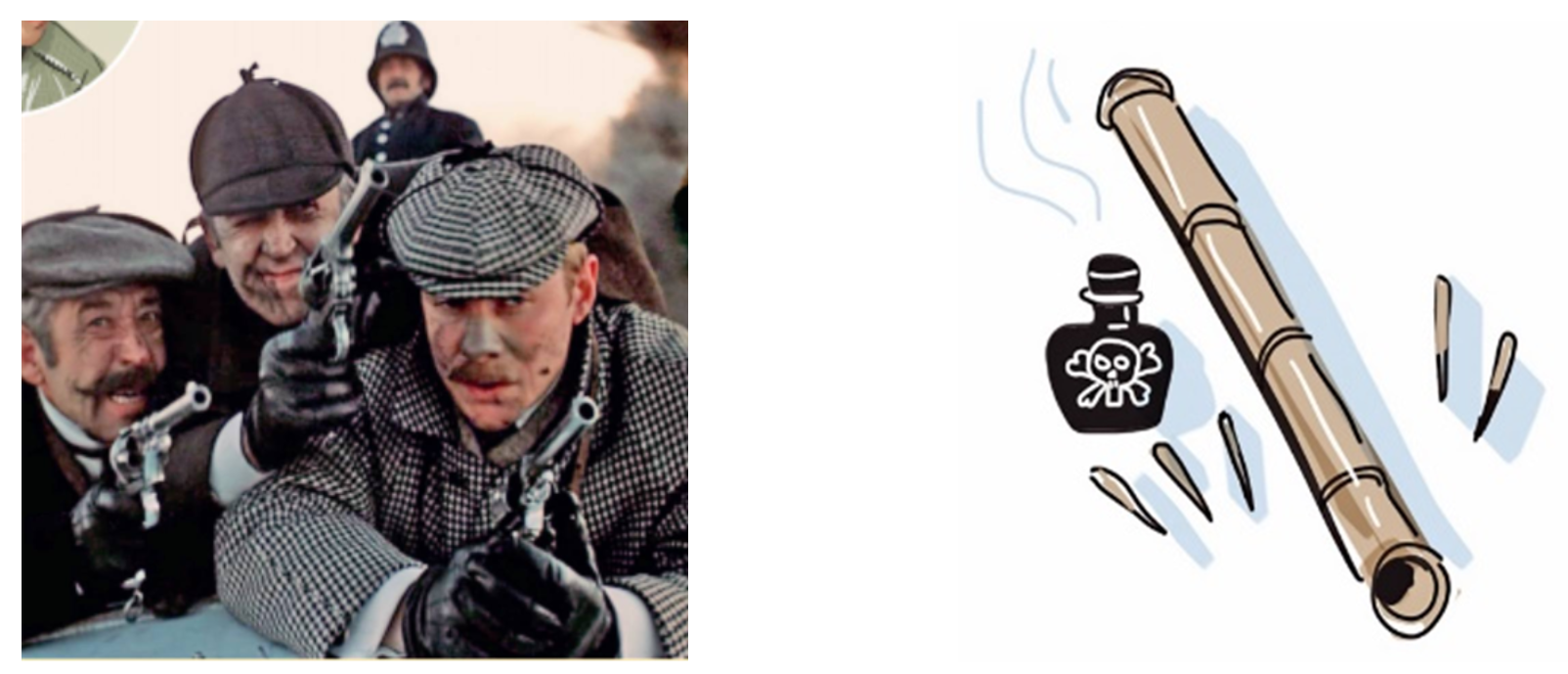Treasures of British India

The eighth episode of the Sherlock Holmes series, based on Arthur Conan Doyle's novel "The Sign of the Four," begins with a demonstration of a skilful casket containing the treasures of Agra: gold, precious stones, and other valuables. This impressive casket was created by special effects artist Viktor Okovity. In reality, the casket was an ordinary metal accounting box, decorated with borrowed images from Indian tea packaging and Sanskrit inscriptions from a textbook.
The episode's plot unfolds following a letter received by Miss Morstan, stating she had been treated unfairly. During a meeting with the well-wisher who sent the letter—revealed to be Thaddeus Sholto—Sherlock Holmes, Dr. Watson, and Miss Morstan learn the story of the treasures of Agra. Sholto assures them that part of the Agra treasure rightfully belongs to Miss Morstan, as some of it should have belonged to her father. Thus, the main legal conflict of this film concerns the legal status of treasures transported to England.
Captain Morstan and Major Sholto obtained these treasures through deceit, as the treasure map was given to them by John Small in exchange for a secret they possessed. Therefore, claims to the treasures of Agra are made by escaped convict John Small, the Sholto brothers as Major Sholto's heirs, and Miss Morstan as Captain Morstan's heir.
The presented shot captures the pursuit of Jonathan Small by Sherlock Holmes, Dr. Watson, and Lestrade (played by a talented Soviet actor Borislav Brondukov) chasing Jonathon Small on a steam boat on the Thames. This explains why the characters' faces are covered with soot. With revolver shots the main characters hit Savage Tong - Small's assistant who used thorns dipped in lethal poison derived from a tropical plant as his criminal weapon. It was with such thorns that one of the Sholto brothers was murdered.
The murder in the story relates to the struggle over the contents of an Indian treasure secretly brought to England by Captain Morstan and Major Sholto. The then-in-force Indian Treasure Trove Act required notifying any revenue-collecting official in the relevant district about the find and that the find should be handed over to the nearest government treasury department.
Failure to report a treasure discovery carried a penalty of up to one year's imprisonment, with or without a fine. Consequently, under English law of that period, the treasures of Agra could not be recognized as the property of Captain Morstan and Major Sholto, nor could it subsequently be inherited.